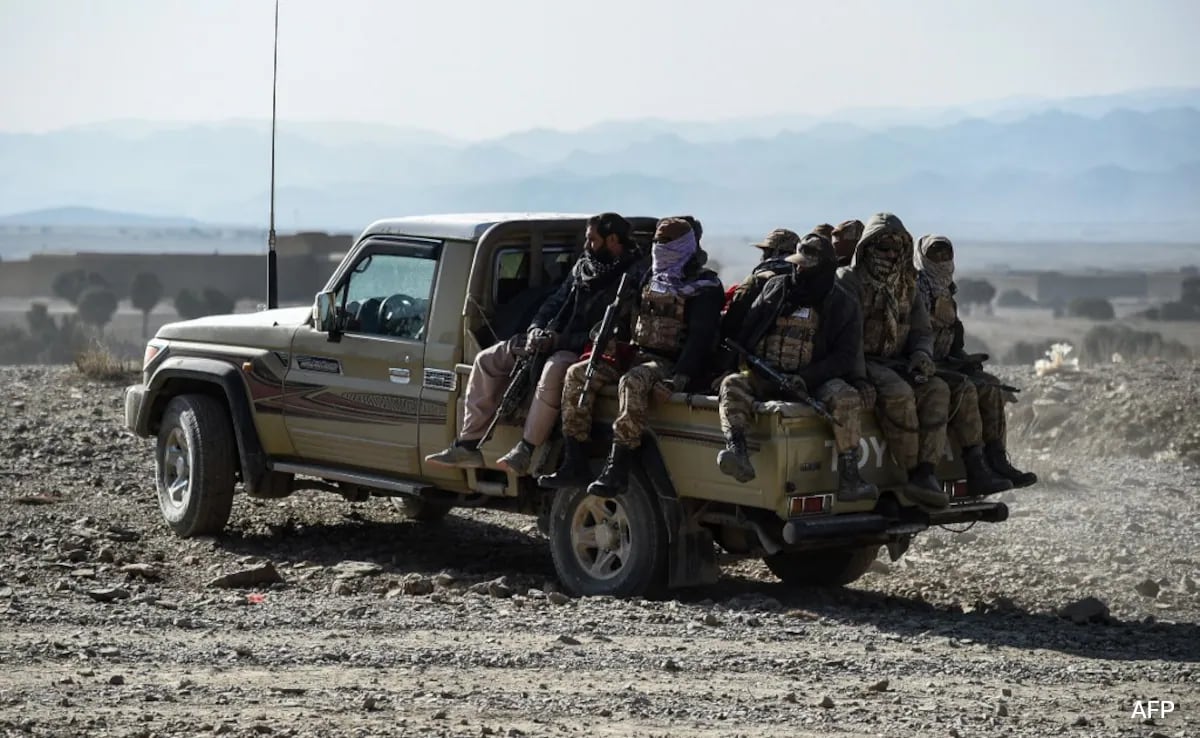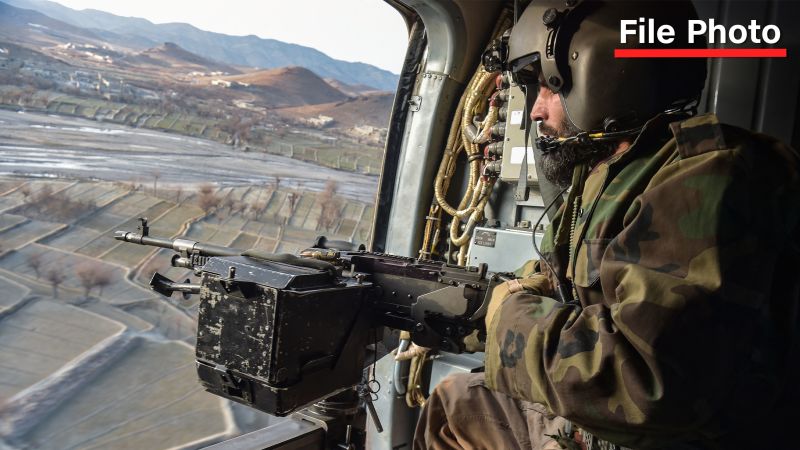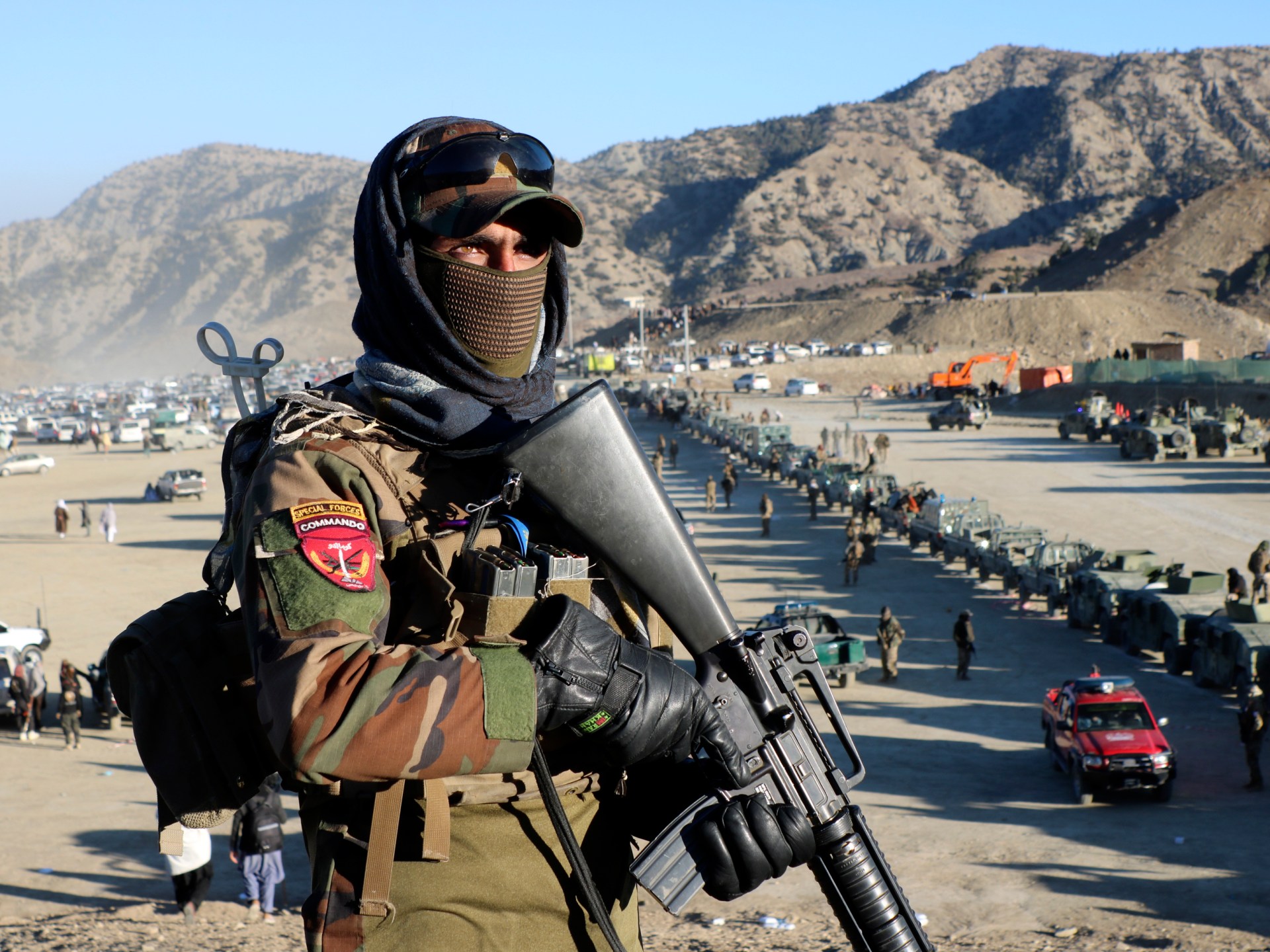In a rare public rebuke, a senior Taliban figure has called on the group’s leadership to end the ban on education for women and girls in Afghanistan.
Afghan foreign ministry political deputy Sher Abbas Stanikzai made the remarks in a speech on Saturday in south-eastern Afghanistan’s Khost province.
He told an audience at a religious school ceremony there was no reason to deny education to women and girls, “just as there was no justification for it in the past and there shouldn’t be one at all”.
After seizing power in 2021, the Taliban government instated a ban on females accessing education after the sixth grade.
The Taliban has banned women from higher education at institutions like Kabul University. (Reuters: Sayed Hassib)
Mr Stanikzai asserted the ongoing prohibition against female education had no religious justification.
“We are committing an injustice against 20 million people out of a population of 40 million, depriving them of all their rights,” Mr Stanikzai said in a video shared by his official account on social media.
“This is not in Islamic law, but our personal choice or nature.”
Comments dismissed as bid to ‘rebrand’ Taliban
Mr Stanikzai was once the head of the Taliban team in talks that led to the complete withdrawal of foreign troops from Afghanistan.
It is not the first time he has said that women and girls deserve an education.
He made similar remarks in September 2022, a year after schools closed for girls and months before the introduction of a university ban.
Activists have warned that true progress can only come when there is the full restoration of women’s rights in Afghanistan. (AP: Ebrahim Noroozi/File)
“We call on the leadership again to open the doors of education,” he said, marking the first call for a change in policy and a direct appeal to Taliban leader Hibatullah Akhundzada.
However, Afghan women’s rights advocates warned against viewing it as a turning point.
Zubaida Akbar, an activist with the women’s human rights organisation Femena, said the remarks were likely a strategic move to bolster credibility for the Taliban internationally.
“The Taliban deputy’s remarks about there being no excuse for the education bans on Afghan women and girls reflects desperation,” Ms Akbar told the ABC.
“They think making these statements is a strategic move to rebrand themselves as progressive.”
Deputy Foreign Minister Sher Mohammad Abbas Stanikzai is often criticised by his peers for advocating for women’s rights. (Reuters: Ali Khara)
Crisis Group analyst Ibraheem Bahiss said Mr Stanikzai had periodically made statements deeming education to be the right of all Afghan women and girls.
“However, this latest statement seems to go further in the sense that he is publicly calling for a change in policy and questioned the legitimacy of the current approach,” Mr Bahiss said.
Susan Hutchinson, executive director of the NGO Azadi-e Zan (Free Woman), who has helped several women’s rights defenders from Afghanistan, said Mr Stanikzai’s comments alone are not enough to lead to a lift in the ban.
“Mr Stanikzai is one of the more progressive of the Taliban leaders and is often criticised by his peers for his stand on women’s freedoms,” Ms Hutchinson explained.
“The lack of educational access is a serious issue for the Afghan economy and overall welfare of the country,” she added.
Pressure on Taliban regime over denial of women’s rights
No country recognises the Taliban as the legitimate rulers of Afghanistan, but countries like Russia have been building ties with them.
India has also been developing relations with Afghan authorities.
Nobel Peace laureate Malala Yousafzai has called on the international community to speak out against the Taliban’s ban on women and girls’ education.
In Dubai this month, a meeting between India’s top diplomat, Vikram Mistri, and Foreign Minister Amir Khan Muttaqi showed their deepening cooperation.
The United Nations has said that recognition of the Taliban government is almost impossible while bans on female education and employment remain in place and women can’t go out in public without a male guardian.
Nobel Peace Prize laureate Malala Yousafzai this month told a conference hosted by the Organisation of Islamic Cooperation and the Muslim World League that Islamic leaders should challenge the Taliban on women and girls’ education.
Ms Akbar highlighted the broader repression under the Taliban including banning women from work, singing or being heard in public.
“Access to education is not meaningful progress if women cannot freely move, speak, or participate in public life,” Ms Akbar said.
She called on the international community to remain vigilant against attempts to use partial reforms to win legitimacy.
“The Taliban negotiator’s statements appear to be a calculated effort to present an image of reform within their ranks.”
Some activists warn that the Taliban’s statements may be a calculated effort to present an image of reform. (Save the Children: Holly Robertson)
A statement on behalf of Ambassador Wahidullah Waissi of the Islamic Republic of Afghanistan in Canberra to the ABC echoed these sentiments.
“Restoring girls’ access to education — an essential and fundamental human right —requires more than superficial policy changes or public discourse; it demands a transformative shift in attitudes to undo the deep damage caused by their oppressive actions,” said the statement.
Since the Taliban’s forced takeover in August 2021, the Embassy of the Islamic Republic of Afghanistan in Canberra has continued to fulfill its diplomatic responsibilities under the Vienna Convention on Diplomatic Relations of 1961, operating independently of Taliban influence.
The Taliban has increasing added restrictions on women since taking power. (Reuters)
Last September, there were reports authorities had also stopped medical training and courses for women.
In Afghanistan, women and girls can only be treated by female doctors and health professionals.
Authorities have yet to confirm the medical training ban.
ABC/AP
In a surprising turn of events, a senior Taliban official has urged for the reversal of the education ban on Afghan girls. This comes as a welcomed change from the group’s strict policies that have oppressed women and girls for years.
The official, whose identity has not been disclosed, emphasized the importance of education for all Afghan citizens, regardless of gender. They stated that education is a fundamental human right and should not be denied to anyone.
This statement has sparked hope among many in Afghanistan, especially parents and activists who have been fighting for girls’ education for years. It remains to be seen how this will be implemented on the ground, but it is a step in the right direction towards gender equality and empowerment.
It is encouraging to see a shift in mindset within the Taliban leadership, and hopefully, this will lead to positive changes for Afghan girls and women in the future. Let’s continue to advocate for equal opportunities for all, regardless of gender.
Tags:
- Taliban official calls for end to education ban on Afghan girls
- Senior Taliban leader advocates for reversal of girls’ education prohibition
- Afghan girls’ education ban challenged by high-ranking Taliban official
- Senior Taliban member pushes for change in policy on girls’ schooling
- Taliban official urges lifting of ban on education for Afghan girls
- Reversing the ban: Senior Taliban leader’s plea for girls’ education in Afghanistan
- Senior Taliban official calls for reevaluation of policy on girls’ schooling
- Afghan girls’ education rights advocated by senior Taliban figure
- Taliban leader speaks out against ban on education for Afghan girls
- Senior Taliban official demands action on girls’ education ban in Afghanistan
#Senior #Taliban #official #urges #reversal #education #ban #Afghan #girls



